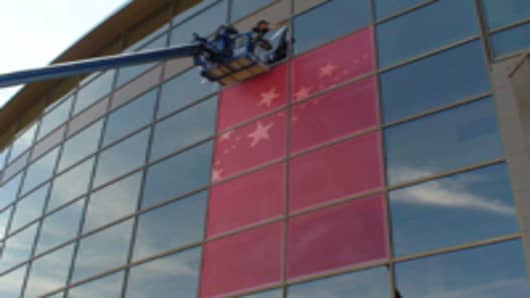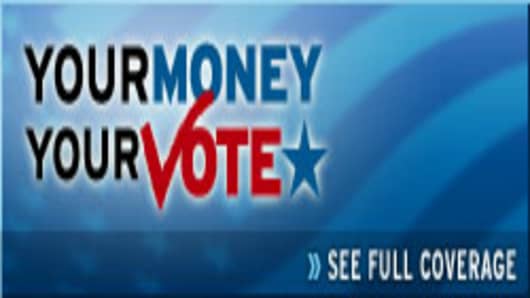
Ed Andrieski
**FILE** The Pepsi Center, the home of the Denver Nuggets and the Colorado Avalanche, pictured in Denver, on Monday, Dec. 11, 2206. The Pepsi Center would be the main site used for the Democratic Convention in 2008. The 2008 Democratic presidential convention will be held in Denver, the Democratic National Committee announced Thursday, Jan. 11, 2007. (AP Photo/Ed Andrieski, FILE)
Denver's host committee says it is on target to reach its goal of $40.6 million, having raised about 70 percent through June, says Chris Lopez, the committee's communication director.
Most of that money has come from national fundraising, Some of the major donors include Anheuser-Busch , Google and Chesapeake Energy -- again, all visible on the committee’s Web site.
National Stage, Local Prize
On average, each convention will attract 35,000 to 45,000 delegates, party officials, volunteers and members of the media -- in other words, a small city worth of shoppers, diners, taxi riders and hotel guests.
Downtown Denver restaurant owner, Greg Goldfogel, says he expects to see an immediate and much-need economic boost.
“We know it will be healthy for our business,” says Goldfogel. “Business is off right now, not just here but throughout all of downtown because of the economy.”
Goldfogel may have reason to be hopeful.
According to a report by Boston's Office of Budget Management, the city and its environs, which hosted the Democratic National Convention in 2004, felt an economic impact of over $160 million in direct and indirect spending.
Lopez sees an even longer-lasting impact.
“It sets up Denver as a convention city, as a destination city, as a tourism city and state,” he says. “It’s luring and attracting other corporations as they see again and again this a good place to do business.”
Jo Ann Davidson, the Republican National Convention Co-Chair of the Committee of Arrangements, agrees, saying a convention can do a lot for a city's image.
“It’s more than you can put a dollar and cents on,” Davidson said. “It just establishes the city in a different limelight.”
Fundraising Debate
Though cities are understandably grateful that big-name companies are stepping in to foot the bill, the role of such corporate sponsors has raised questions about campaign finance; corporations' hefty donations allow them a legitimate marketing platform but can also create unusual access to political leaders.





